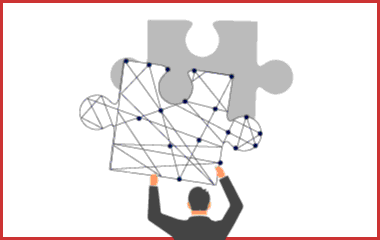Salesforce Pays $2.8 Billion For Demandware, Joins Commerce Arena
Big news in the customer experience management (CEM) world today with the announcement that Salesforce is acquiring Demandware for $2.8 billion. That’s a whopping multiple on Demandware’s revenues of $237 million reported for FY 2015 (of which 84% was from subscriptions) and considering the company is not profitable. Was this a good move?
In some ways, yes, but in others, not so much.
First, let’s look at the key points of the deal, which was announced earlier this morning:
- Salesforce has signed a “definitive agreement” to acquire Demandware via a tender offer for all outstanding shares of the commerce vendor, which is currently publicly traded, at approximately $75 per share, in cash.
- The deal is expected to close July 31, 2016.
- Demandware will become a new product for Salesforce called Salesforce Commerce Cloud.
- The entire Demandware team will join Salesforce.
- Demandware is expected to add incremental revenues of $100 million to Salesforce for the company’s FY2017.
What does this mean for Salesforce?
Demandware, like ExactTarget before it (that marketing automation vendor was acquired in 2013 for $2.5 billion), will become a key product within the larger Salesforce Customer Success Platform. Salesforce has long needed an e-commerce platform to provide the transactional piece of its CEM story. As executives from both Salesforce and Demandware have pointed out, the two companies have already partnered in the past and both have large market shares in their respective Saas-based CEM solutions.
Salesforce believes that Demandware’s strength in B2C, specifically in retail and CPG, further supports the larger vendor’s strategy of focusing on specific verticals, and reports that the acquisition is responding to a request from customers to offer “an entire suite of customer engagement.”
There were also reportedly other bidders for Demandware (we’ve heard rumors of Adobe, for example, which desperately needs a commerce platform), which may explain the premium Salesforce paid, as well as the fact that there aren’t really many other multi-tenant options out there.
However…
While I agree that Demandware makes sense for Salesforce in terms of rounding out its portfolio and gaining commerce expertise, I’m not convinced the premium it paid was justified.
First, while retail is a key industry for Demandware, and they have solid renewal and customer satisfaction rates, B2C is only part of where e-commerce growth will be coming from in the next few years. B2B, as well as B2C/B2B combinations (think manufacturers that are selling direct to consumers as well as through resellers), will also be worth billions. Yet Demandware doesn’t really have a B2B story to speak of.
Second, Salesforce is still lacking a key part of the CEM puzzle: content. Content is increasingly becoming an inextricable part from the customer journey, and Demandware has ended up partnering in the past with WCM vendors to meet customer’s content and commerce needs as they have become more sophisticated (cosmetics company Urban Decay, for example, integrated e-Spirit with Demandware to improve its online brand experience).
Third, I question how many decision makers buying enterprise software truly put their money where their mouth is in purchasing a suite of multiple services from a single vendor. In past research we’ve done and in conversations with buyers and the service providers that work on implementations, we’ve heard just as much evidence to the contrary: that rather than go all-in with a single vendor, they prefer to purchase best of breed, or to integrate legacy systems that still have years left with newer purchases.
On that last point: I’d like to see more concrete data from Salesforce that points to a statistically significant sample of decision-makers that they prefer a suite vs separate approach. Not CEOs, but the people in the levels where they actually have to implement and use the software. Just saying “customers have asked us” for a suite doesn’t convince this analyst that it is definitively the case. It may indeed be that to get into the biggest deals, Salesforce has more leverage in being able to say that, like SAP, Oracle, and IBM, it has a suite that includes sales, service, marketing, and commerce. But when it comes down to actual implementation and usage, I have my doubts.
Fourth, I know that Salesforce is, true to its name, a sales giant. But I caution the company to assume that it can use the same playbook and tactics to sell to commerce-focused buyers as it does to those who buy marketing software. Commerce professionals are very process and operations oriented, and will be concerned with issues like integration with ERP and other systems in order management and fulfillment, payment options, and more. It will need to make sure that as it integrates Demandware into its organization, it maintains that understanding of e-commerce buyer requirements and concerns.
And Demandware?
Demandware’s leadership and investors are the biggest winners here. They were at the helm of a company that lost money for the last four years – in FY2015 it lost $37 million – and where expenses for its core revenue stream of subscriptions were growing faster than revenue from that stream. There will likely be redundancies due to overlaps in the two organizations, particularly in marketing and sales as Demandware is folded into the Salesforce portfolio. But overall, Demandware comes out well from this event, getting access to the resources and infrastructure to reach the larger enterprise customers at which it has been aiming.
Implications for Customers
Customers of Demandware who are already Salesforce users, and vice versa, will obviously see the least amount of friction as the two companies combine forces. Demandware customers who aren’t Salesforce users: expect to hear soon from a Salesforce account manager, offering an incentive to switch over to Salesforce. And note to Salesforce customers who are considering commerce platforms: Salesforce (rightly) will continue to work with other vendors with whom it has existing partnerships, so make sure you understand who those are and how they compare with Demandware, in order to best meet your requirements. And please contact us if you want to continue the discussion.








